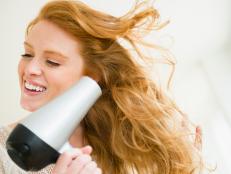Salt Rooms, Sensory Deprivation Floats, Cryotherapy: We Ask the Drs. About Alternative Therapies
Do alternative therapies actually work? What do traditional Western doctors have to say about the safety and efficacy of alternative medicine?

iStock
Since the old days of the traveling snake oil salesman, outside-the-box medical therapies have offered lofty promises of health and healing. Do alternative therapies actually work? What do traditional Western doctors have to say about the safety and efficacy of alternative medicine?
Read on for pro takes on the hot new trends in alternative medicine. You might be surprised to read what well-respected doctors have to say!
1. Salt Therapy/Salt Rooms
What is it?
Salt therapy has been touted as a miracle cure for colds, allergies, asthma, eczema, and even life-limiting cystic fibrosis. The anti-bacterial and anti-inflammatory benefits of salt are said to promote healing, especially for those with respiratory and skin afflictions. Salt therapy may involve inhaling dry salt or relaxing in a salt room while mist drifts around you.
What's the Pro Scoop?
Dr. Oz opines that halotherapy (aka, "salt therapy") and the healing mineral of salt can yield powerful, alternative relief for many breathing and skin ailments.
According to Dr. Oz, salt therapy's use is broad. He posits halotherapy can be used for "tons of things--from colds to allergies to asthma, dermatitis, and psoriasis of your skin...even cystic fibrosis has been arguably treated with salt therapy."
Salt rooms are another way to get in on the healing benefits of salt therapy in a relaxed environment. Salt rooms generate microparticles of aerosolized salt into a relaxing environment. Most salt rooms allow you to recline in a spa-like environment while you breathe in the misty salty air around you.
2. Cryotherapy
What is it?
Cryotherapy is when one stands in a chamber as liquid nitrogen, chilled air flows around them. The chamber cools to a temperature as low as minus 300 degrees Fahrenheit. Clients stay inside the super-frigid chamber for up to three minutes. Proponents of cryotherapy treatment state that the super chilled air encourages a flood of endorphins and reduces muscle and joint pain.
What's the Pro Scoop?
According to Dr. Weil, professional cryotherapy centers are largely unregulated and may not be safe. In fact, the recent death of a client at a cryotherapy center raised controversy about the overall safety of this alternative health practice.
Cryotherapy centers state that individuals with pre-existing conditions including high blood pressure, skin infections, diabetes, pregnancy, seizure disorders, and heart problems should not seek treatment as it may cause complications.
According to Dr. Weil, pro athletes and elite competitors may benefit from the occasional ice bath during training, but that the general population should tread carefully before jumping into the cryo tank. The risks may simply outweigh the potential benefits, especially given the lack of state and federal oversight.
3. Acupuncture
What is it?
Acupuncture is an ancient alternative medical practice dating back to early Chinese traditions. Acupuncture involves inserting small needles throughout the body. The theory is that the insertion of needles moves energy throughout the body to promote healing and wellness. Acupuncture has been used to treat a vast array of aliments--from infertility to digestive disorders to pain relief in cancer patients.
What's the Pro Scoop?
Orthopedic surgeon and Yale Professor, Dr. Karen Sutton, says that patients often ask about the healing impact of acupuncture.
According to Dr. Sutton, "the secret to acupuncture is cortisol. Cortisol is the stress hormone, and as we all know, stress can lead to many different illnesses. Acupuncture lowers cortisol levels, reducing and reversing inflammation, which can undo the damage of stress." In Dr. Sutton's experience, acupuncture can "treat migraines, hormonal imbalances, and issues with the gastrointestinal track." (Rumor has it that the needles don't hurt -- much!)
4. Sensory Deprivation Float
What is it?
Sensory deprivation is when the participant rests (floats) in a completely dark and soundproof tank in a sea of buoyant liquid. Health benefits of sensory deprivation floating are said to be increased relaxation, stress control, pain management, improved sleep, and management of chronic illnesses, such as fibromyalgia or Lyme disease.
What's the Pro Scoop?
Dr. Robbie Drummond is a busy ER doctor who uses his sensory deprivation float time to mediate, de-stress, and unplug.
According to Dr. Drummond, "floating in the dark is a profoundly serene experience. Our world is rife with anxieties & distractions. Conditions like anxiety, depression & ADHD respond to the process of calming the mind." In his personal and medical opinion, "Floating won't magically cure mental illness but it is a powerful strategy...or tool to work against it...used in conjunction with other therapies it is powerful medicine."
The bottom line is this: When it comes to your health, only you know your body. If an alternative treatment is working for you, than that's the right treatment for your own health, healing, and happiness!












skin-cycling-GettyImages-1218975837.jpg.rend.hgtvcom.231.174.suffix/1665668327767.jpeg)

